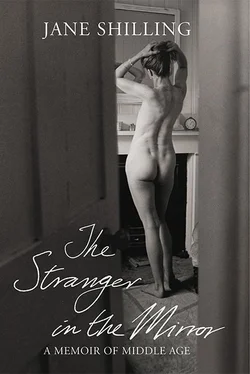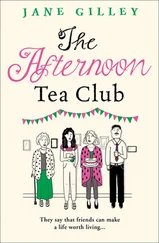Now I began to accept the invitations that I had been accustomed to avoid: launch parties for magazines, book publication parties, a PEN charity quiz, celebrity-packed and compèred by a fashionable comedian at the Café Royal. Night after night I got dressed up in the least eccentric clothes I could find and set off for clamorous gatherings in the prosperous West End: champagne and smoked salmon at the Wallace Collection; more champagne at the Natural History Museum; an exquisite dinner of tiny plates of spiced doll’s-house food at a smart Indian restaurant; yet more champagne at the Polish Hearth Club, a party from which I had to sprint to yet another party on the same evening. The latter, I learned from the gossip columns the following morning, had been the Party of the Year.
There was a fine line to be struck at these gatherings: on the one hand, my purpose in attending them was in the hope of meeting someone who might feel inclined to give me some work. On the other, I was well aware that misfortune repels. People don’t like bad luck: they think it’s catching. It was important not to look desperate. Sometimes, as the parties thinned out and people went on to their other engagements, I would run into another middle-aged journalist who was having similar difficulties with work. Garrulous, resentful, a little shabby, she terrified me. I thought that if I wasn’t like her already, I surely soon would be.
Not all the parties I went to were alienating. Sometimes I found myself, to my astonishment, having a nice time, even talking happily to strangers – the thing I most dreaded about going out. A capacity for sociability, dormant for years, put out a cautious shoot. At a dinner party to celebrate the publication of a very good novel by an Albanian novelist I found myself sitting next to the novelist, who spoke almost no English, but kept up a lively conversation alternately in Albanian to his left-hand neighbour, the Albanian Ambassador, and in strongly Albanian-flavoured French to me.
On my other side was a young woman who worked on the Foreign Desk of the paper that had just terminated my contract. She had no idea that we had once been colleagues. She was at the beginning of her career, excited about her job with a grand overwhelming passion, as though it were a new love affair. The Foreign Desk had allowed her to save up all her leave, she said, and to take some additional time off so that she could attend an intensive Arabic course at Damascus university. After that she hoped to become a Middle East correspondent.
A fierce and terrible pang of envy shot through me when she said this, like the one that used to grip me in my late twenties when one of my friends announced that she was getting married. Earlier that year I had cut out a newspaper article about a three-month intensive Arabic course run by Tunis university during its summer vacations. I had been to Tunis once and liked it very much: the pale Roman mosaics in the museum, redolent of a life of cultivated ease, the dark and fascinating market where I bought a pair of blue-and-gold leather slippers and a silver bracelet embossed with roses, the flower stalls selling bunches of jasmine bound on to little sticks, which I later saw being gracefully twiddled by men strolling and talking in the cool of the evening, the francophone sensibility, so familiar and so entirely strange.
When I saw that newspaper article I thought that I should like nothing more than to spend three months at Tunis University, learning Arabic. I was used to seeing things that I thought I’d like to do and having to dismiss them because of the tyranny of school terms, but as I began to do the same with this idea, it occurred to me that in a couple of years’ time, Alexander would have left school. Whatever he chose to do afterwards, he would certainly not be needing me around. If I wanted, I could let the house and go for three months to Tunis, there to learn the hard language that I wished I had studied when I was younger.
I had been hugging this idea like the promise of a reward – my pay-off for accomplishing eighteen years of motherhood; the first act of my new future of freedom. But something about my conversation with this very bright and sensible girl, whose career path stretched ahead of her in orderly stages, the route clearly marked, not all haphazard and chaotic as mine had been, made me feel suddenly silly, with the particular silliness of a middle-aged woman caught out in fancying herself still capable of doing at 50 the same things that she had done at 20.
Suppose I did go to Tunis for the summer, suppose my ageing brain proved capable of mastering the rudiments of Arabic – what on earth would be the point? It was hardly likely that I could reinvent myself as an Arabist at this stage of my career. It would be a vanity project, of the sort that people take up in their retirement to kill time: petit point, watercolour painting, wood turning. Amateur accomplishments; conversation pieces, ugly and pointless as mantelpiece ornaments.
In the luxurious gloom of adolescence I had counted the careers already closed to me at 14 or 15 – dancer, pianist, vet: proper, demanding vocations, I thought, measured against which writing, which I knew I could do, seemed a negligible, frivolous skill. Now, looking back over the succession (as it seemed to me) of missteps by which I had inexorably closed down the opportunities life had offered me, I was gripped first by a piercing regret for my 20-year-old self, so clever, so unhappy, so stupidly blind to the riches at my disposal; and then by a sort of terror for this young woman, so unlike my younger self in her composure and certainty: a feeling almost like a prayer, of wanting her always to be as safe and certain as she was now, for hateful middle age never to come and blight the confidence, the conviction that she was in charge of her own destiny, that presently shone from her like virtue.
It was only a mood, and by the morning it had changed again; the idea of a trip to Tunis to learn Arabic – not for any particular purpose, just for the sake of the journey and the pure exhilaration of learning something new – seemed once again a bold, interesting, enchanting project. The principal symptom, I was finding, of unemployment was the violently opposed perspectives of the future that it dangled before the mind’s eye. I had most of the time a sharp physical sense of cracking open, as though I were an egg from which something damp and bedraggled was struggling to emerge into a future that seemed alternately appalling or exhilarating.
I was haunted by a sense of the extreme fragility of our domestic life, the terrifying speed with which it could unravel. All it would take would be a few months of failing to pay the mortgage, and the carefully arranged stage set on which the past sixteen years of our life together had been played out would vanish: the house repossessed and sold to someone else, the spindly chairs, the pretty woodcuts and bits of chipped china dispersed and just us left, two bare forked animals, stripped of all the accumulated narrative of our lives.
Then again, I had observed in myself over decades a timid tendency to cling to situations – lovers, jobs, places – long after someone braver would have got out. There were a few sunny mornings when the world seemed not poised to disintegrate, but full of possibility for self reinvention, even so late, even as the arc of life was curving away from its apex. But the feeling was elusive and as no work came it visited me less frequently.
‘Debt,’ wrote Merryn Somerset Webb in Love is Not Enough , her admirable manual for women on how to manage money, ‘erases freedom more surely than anything else. Once you are in real debt your quality of life disappears.’
We were not – yet – in really serious debt. The one prudent financial decision I had made in my life was to buy a fairly cheap house on a sensible mortgage and overpay steadily. What I had not done was to save. I had not, in newspaper terms, ever been particularly well paid. At the height of my prosperity I was irritated to learn that I was earning slightly less than the starting salary of a friend’s 23-year-old daughter at a firm of city solicitors. We had lived comfortably – a week’s nice holiday a year, the middle-class flourishes of piano and tennis lessons, a well developed junk shop and second-hand book habit – but not very extravagantly; no dishwasher, no freezer, no widescreen telly, an ancient car. Apart from the baroque folly of keeping a horse in livery.
Читать дальше












